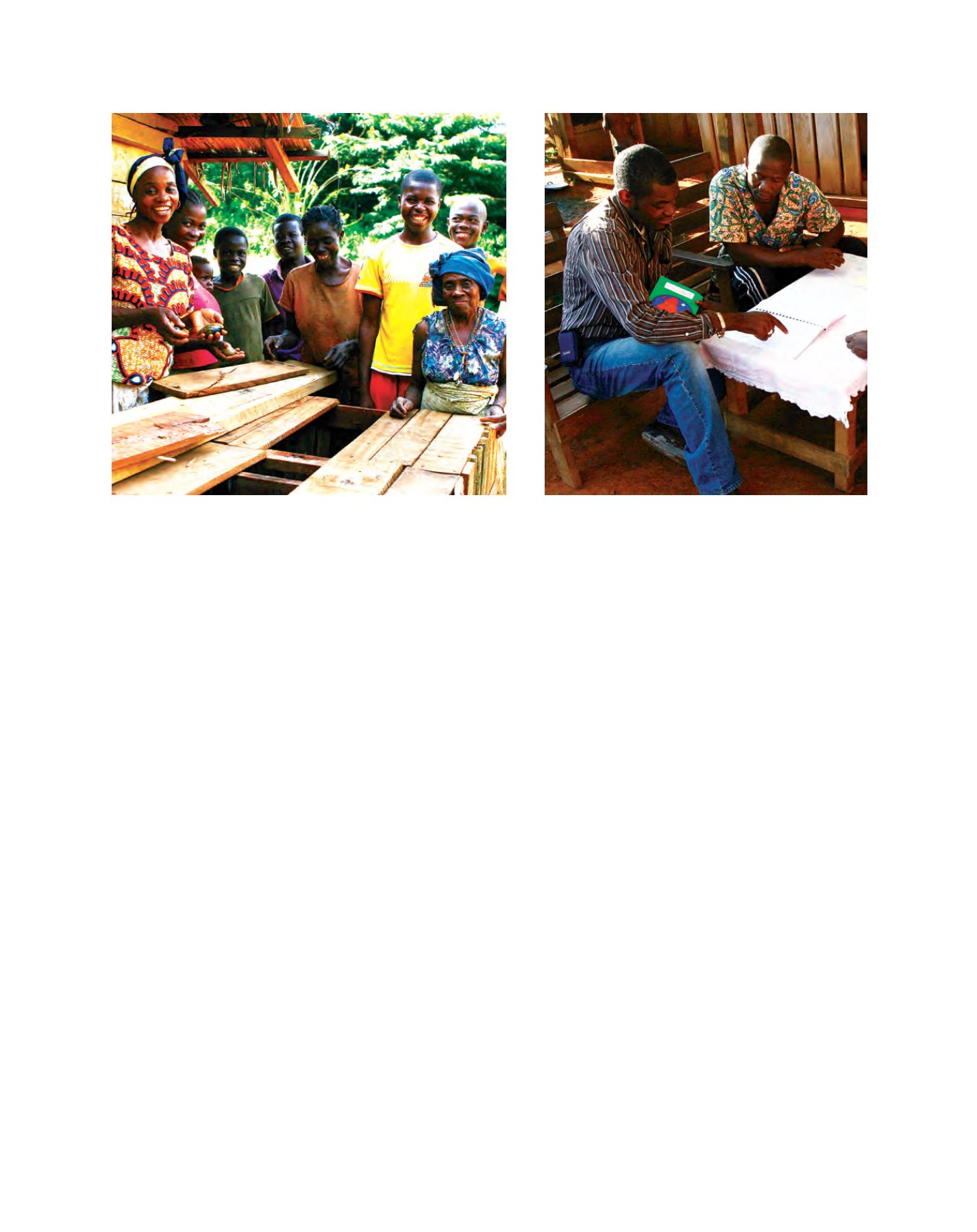

[
] 224
these ministries. In addition, two technical advisers serving as
integrated experts in the Association of Forest Councils facilitate
the link with the council level. This vertical approach enables the
programme to feed back experiences from the local level to the
national level.
ProPSFE’s outreach is further strengthened through close working
relationships with other BMZ-funded programmes, including a
decentralization programme in Cameroon, a programme to support
the Commission for Central African Forests, and a Congo Basin
Forest Partnership facilitated by Germany from 2008 to 2010.
Moreover, coordination between all programmes in the ‘green sector’
in Cameroon is managed through the consultation framework of
MINFOF/MINEP partners. Finally, ProPSFE collaborates intensively
with the private sector through public private partnerships on forest
management certification for timber companies.
Future challenges with regard to capacity development
Despite important progress made in shaping enabling framework
conditions for sustainable forest management and in developing
capacities for the implementation of PSFE in Cameroon, certain
challenges remain:
• Incentives to use acquired skills and capacities are sometimes
missing in national structures. In ministries, job performance
is not necessarily rewarded and individuals are not always
promoted on merit. Discussions are currently underway
with other development partners in relation to sustainable
mechanisms for the payment of premiums based on the use and
application of additional skills acquired and outcomes delivered
• Within certain partner institutions there exists substantial
resistance to change. The introduction of democratic elements and
the strengthening of capacities among marginalized populations
(including local communities) contribute to a reallocation of
resources and power. To reduce the perception of certain groups
of the loss of influence that innovation appears to represent, the
programme aims at overall and inclusive growth.
Alliances at a higher management and political level
seem to facilitate the adoption of innovations and will
be further strengthened
• Capacity development is still sometimes seen as
an opportunity for individuals to gain individual
benefits, such as paid travel duties, instead of to
gain more knowledge and skills for the institutions
that employ them. Given the power and decision-
making structures within the partner ministries,
it is sometimes difficult to target capacity
development measures at staff who will later
multiply their newly-gained knowledge within the
institution. Therefore, ProPSFE is exercising more
influence on the list of participants for co-funded
training programmes
• Monitoring of PSFE implementation still lacks
the necessary rigour and political attention.
Agreements and decisions reached within the PSFE
dialogue platforms, and decisions taken within
the framework of consultation, are not always
enforced. Hence, a stronger focus on monitoring
the implementation of decisions is necessary for
the future.
Germany’s support for the world’s forests will continue
to grow in the years ahead. Chancellor Angela Merkel’s
pledge to increase German support for the conservation
of forests and other ecosystems by half a billion euros by
2012 has resulted in a strong increase in commitments
for mainly forest related development cooperation
in recent years. From 2013 onwards it is planned to
invest an annual half a billion euros in forests and other
ecosystems, including through REDD+.
Capacity-building for marginal populations helps communities access information
Attainment of Forest Stewardship Council criteria is on the agenda
Image: Viora Weber
Image: Viora Weber
















